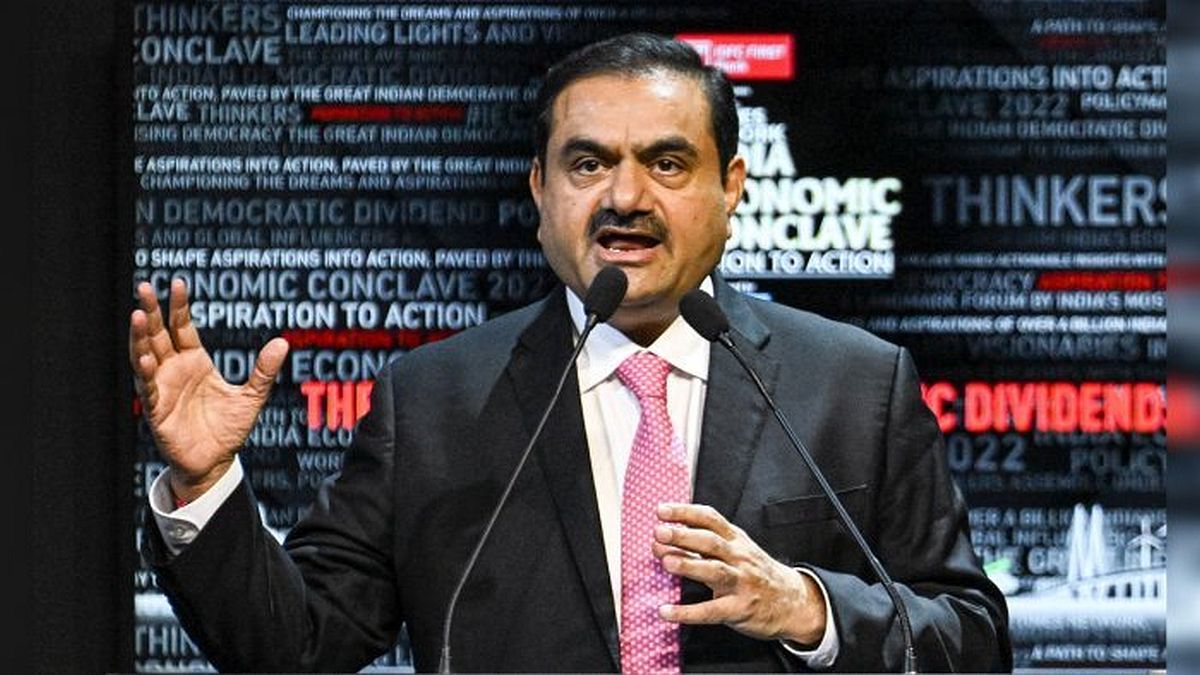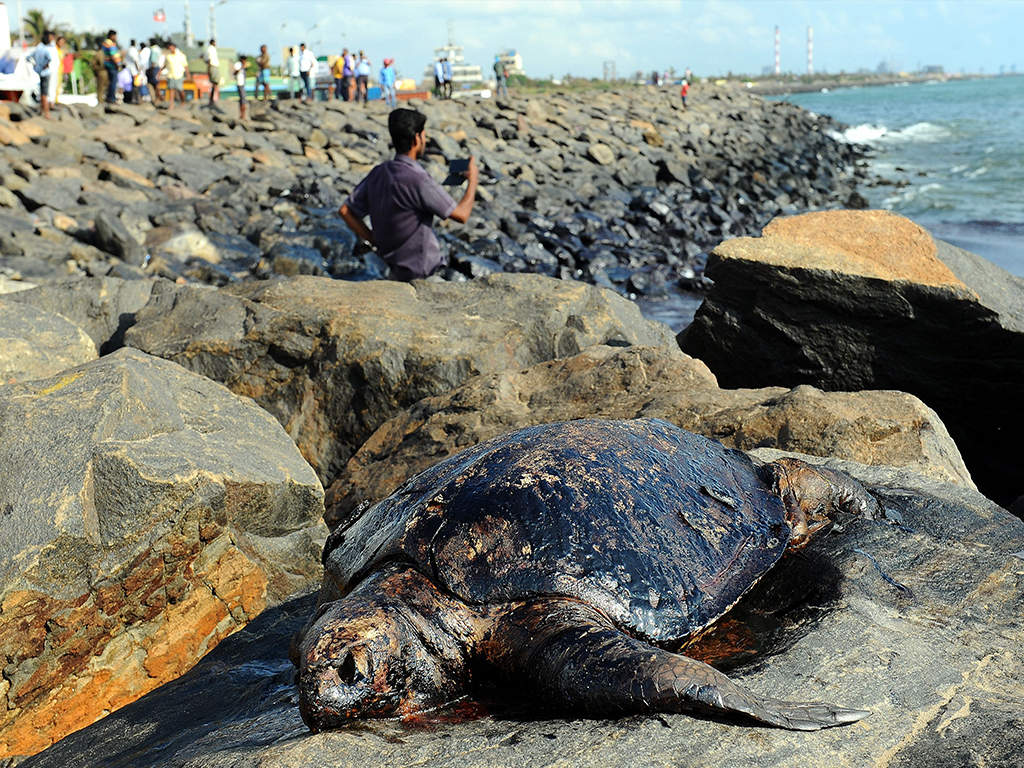Did The Modi Government Really Want To ‘Hand Over’ India’s Food Grain Logistics To Adani Group As The Congress Alleges; There Is No Smoke Without Fire!
Modi governments woes have not begun to slowdown since the time Hindenburg Report made its outing, all seemed to have gone horribly wrong not only for the Adani Group and its leadership but all those who may have been associated with the group in some capacity - the retail investors, the banks that lent to the group, those who had substantial exposure in terms of portfolio dedication and even the present government. The Congress has been persistent in its attack on the government even weeks after Adani Group stocks took a beating. However, things are on the boil yet again as new allegations are gaining ground. Will Adani Group and the Modi government be able to dodge the questions and the allegations this time as more and more proofs spill out!

We have not forgotten the massive uproar that touched all corners of the country at the introduction of the three new farm laws by the Modi government in September 2020. It led to mass protests by the farmers who gathered in thousands, mainly from Punjab and Haryana and marched towards the national capital to oppose the new farm laws; the protest started in 2020 and continued till 2021.
In the latest round of ammunition of allegations thrown at the Adani Group and the Modi government, the Congress has gone as far as to say that the government wants to “handover” the precious and very lucrative food grain logistics of the nation to the Adani Group.
Congress general secretary Jairam Ramesh has taken the battle a bit further as he stated that the Modi Government would have followed through with the inclination and most likely as it has done in the past with so many businesses ‘handed over’ to the Adani Group but for the farmers protest that the same was thwarted.

While it is understandable that when it comes to politics, it is the job of the opposition to take the mileage and pose questions about a particular event that, in all likelihood, allows the opposition to make things difficult for the reigning government.
Hence, Congress has been persistent in its attack on the government weeks after Adani Group stocks took a beat at the bourses after US-based short seller Hindenburg Research made a series of allegations, including fraudulent transactions and share-price manipulation.
As is evident, the Gautam Adani-led group has dismissed the charges as lies, saying it complies with all laws and disclosure requirements.
However, while the Adani Group has maintained its innocence and has said a negative to all allegations made, there is something more here than what meets the eye!
Firstly, if one were to look at the pattern, then there is some truth to the fact that, indeed, not only the Adani Group but also the Ambani Group has been granted significant deals after the Prime Minister has met leaders of several countries on his foreign visits.
What is the core business of Adani Group – the Adani Group has significant interests in transportation, logistics, energy, and utilities.
And therefore, it does not come as a surprise if the present government would have given India’s food grain logistics to the Adani Group; it already has established a monopoly of sorts when it comes to building and operating the country’s ports and airports.
What is to say that this may not have happened if the Hindenburg report had not come out and all was well as before?

Foot Prints Of Adani Groop – Food And FMCG
Adani Wilmar Limited is one of India’s fastest-growing Food and FMCG organizations.
In January 1999, Adani Group went on to form Adani Wilmar Limited, a joint venture between the Adani Group and Wilmar International Limited, one of Asia’s leading agribusiness groups.
Now check out the wide footprint it has managed to form since 1999 – Adani Wilmar Limited has manufacturing facilities at 50 locations in the country so far, including 27 own plants across ten states.
Its market presence is distributed across 28 states and eight union territories in the country and is present in almost 50 countries overseas.
Since its inception, the company has become one of the – “few significant organizations in India that provides the majority of essential kitchen commodities to Indian customers, such as edible oil, wheat flour, rawa, maida, suji, besan, basmati and Non-Basmati rice, pulses, soya chunks, poha and sugar” – these are words from the company website.
The organization has the largest range of edible oils in the Soya, Sunflower, Mustard, Rice Bran and Groundnut categories. The product mix includes RTC foods like Khichdi and Soya Chunkies.
The importance of edible oil in the infrastructure-oriented Adani Group cannot be understated. Today, AWL is among the most prominent players in the Indian edible oil market, with its most popular brand ‘Fortune’ occupying a significant percentage of the market share.
India is the world’s largest importer of edible oils, meeting the demand for more than half of the cooking oil demand in the country, with AWL among the top importers.
So Adani Wilmer has already spread its wings and has become a key seller when it comes to these products – edible oils, wheat flour, rice and other kitchen essentials that are a part of every Indian’s diet.

Further Apple Controversy – Himachal Pradesh
In 2021, a major controversy hit the Adani Group; these were allegations levied by the Apple farmers in Himachal Pradesh, blaming the Adani Group for plummeting apple prices.
Apple cultivators in the state then held the Adani Group of companies accountable for a sudden price drop. This new price, the apple farmers said, was Rs 16 less than the Rs 88 a kilo rate for supreme quality apples fixed by the Adani group in 2020. The farmers complained that the reduction in prices by a big company like Adani was bound to have a cascading effect on the mandi.
Notably, Adani Farm-Pik was allowed to build a near-monopoly on apple procurement in Himachal Pradesh.
Major Bone Of Contention
The farmers alleged that Adani put the same apples into cold storage and then sold them at double or triple the rates out of season (after March). Adani has its cold storages at Revali, Sainj and Rohru in the state; if the Adani company had paid the farmers even three to four rupees more a kilo for the fruits, it would have made a massive difference to them, particularly since they specified that expenses had gone up so much.
Looking at the above scenario, one can understand why the farmer’s protest may have happened in the first place – the above is an excellent example.
Going by what is already the case when it comes to logistics – ports and all where the Adani Group has managed to strike gold and a monopoly at that it is fair to assume the same could have happened if, indeed, the food grain logistics would have been ‘awarded’ to the Adani Group.

Congress Further Allegations, Sound True?
According to Jairam Ramesh, “The Supreme Court observed that the Ministry of Consumer Affairs, Food and Public Distribution had supported the CWC’s stand while the Ministry of Commerce and Industry had aided Adani’s bid to take control of two major CWC warehouses near Mundra port by not supporting the denotification of the warehouses as part of the Adani SEZ,” he claimed.
Ramesh’s Question – Why did the Ministry of Commerce and Industry, then headed by Nirmala Sitharaman, take a stand opposed to a strategic public-sector corporation and in support of the prime minister’s “favourite business group”, is justifiable?
Our Own Questions?
1) Does slowly liquidating the public sector units and handing them over in the hands of a few corporates (favoured or not) bore well for the country and its citizens?
2) Will it not lead to ultimate power in the hands of few when it comes to essentials – oil, food, fruits etc. – in terms of setting price points and thus manipulation?
3) Is it safe to leave all essential services solely in the hands of a few handpicked influential, powerful and wealthy corporates?
4) Who monitors these corporates? – Sebi, RBI, and ED all failed when it comes to the overvaluation of stocks of Adani Enterprises, massive debts in its books, unhindered borrowing and despite some investigations into the working of the group, the Adani Group was given a free hand until the Hindenburg Report made its debut.
There is yet another example of how the Adani Group may have been favoured – Did the Modi Government tweak environmental laws to facilitate an Adani-backed project?
On 30 September 2020, India’s National Green Tribunal ordered a company that the Adani Group partly owns to remove storage tanks for edible oils from a coastal zone in the country’s southeast.
The National Green Tribunal is India’s environmental protection authority, and it ordered the removal of the plant because it found that it had been established illegally.
This story presents evidence of the ‘tweaking’ of environmental rules by the Indian government to enable the development to proceed, despite being incompatible with the area’s zoning and the associated risks to the adjacent marine environment.
The National Green Tribunal, in ordering the removal of tanks and pipelines, also fined the company the equivalent of AUD $50,000.
Did the Modi government tweak environmental laws to facilitate an edible-oil firm – which business tycoon Gautam Adani partly owns – to obtain mandatory approval illegally?

In a judgment delivered on 30 September 2020, the National Green Tribunal directed the firm to dismantle structures that had been constructed, even before getting the clearance, along India’s southeast coast near the Ennore port in Chennai for transportation and storage of imported edible oil.
The project comprised a pipeline and a transit-storage terminal. The pipeline is over 4.5 kilometres long – from the port to the storage terminal in Tondiarpet village in Chennai – and has a diameter of 25 cm. Five storage tanks with capacities of 1720 KL, 1442 KL, 1281 KL, 855 KL and 7527 KL have been installed to handle and transit edible oil at the transit terminal.
KTV Health Food Private Limited, the firm in question, is a 50:50 joint venture between Adani Wilmar Limited and the Chennai-based KTV Health Foods Private Limited India.
The corporate ownership of KTV indicates Adani Wilmar’s 50% holding in the company. Adani Wilmar is a joint venture between India’s Adani Group and the Singapore-based agribusiness Wilmar International.
The group manufactures and markets ‘Fortune’, a leading edible oil brand in India, apart from Rag vanaspati and palm olein. It sells more than a million tons of edible oils annually in India.
The firm allegedly had applied for clearance from the union environment ministry only after beginning construction work on the project.
An increase in industrial activities such as transportation and storage of oil along the coast poses dangers to marine biodiversity, particularly in case of accidents.
In January 2017, more than 20 tons of oil spilled into the seawaters off Chennai’s coastline after a ship leaving the Ennore port collided with an inbound oil tanker. As a result, dead turtles and fish washed up on Chennai’s beach.

The sludge could be cleared only after various agencies, including the Indian Coast Guard, put in massive efforts. Another incident of accidental oil spill along the Chennai coast was reported in November 2018 when a tanker, the MT Coral Stars, berthed at the port and began leaking its contents. Nearly two tons of oil were spilled into the Bay of Bengal.
Here is what is important to note – during the process, it was found that KTV Health Foods had concealed facts from the environment ministry while applying for the CRZ clearance.
Although construction activities had already commenced, KTV Health Foods had been seeking a prior CRZ clearance for the project.
The story continues, but here is what is of importance – the Modi government’s efforts to help the private firm secure its clearance persisted.
Indian rules do not permit edible oil storage terminals beyond a port or a notified port area. India’s coastal zones are categorized under four heads depending on the ecological sensitivity of the particular area.
Each category has a different set of rules for permissible and non-permissible activities. The project area of the edible-oil storage facility of KTV Health Foods is located along Ennore Expressway, an industrial corridor lying several miles away from the Chennai port and its notified area.
This area falls under the category of CRZ-II under Indian rules, where the establishment of edible oil storage facilities is not permitted.
This is perhaps still an ongoing case!
Conclusion: There are enough instances from which it can be gauged that the Adani Group and perhaps many other corporates have indeed been favoured and made stronger with each passing year.
Whether the Modi government has its vision to benefit the nation and its citizens – perhaps but only in the short term for in the long term this is not an ideal situation for all




